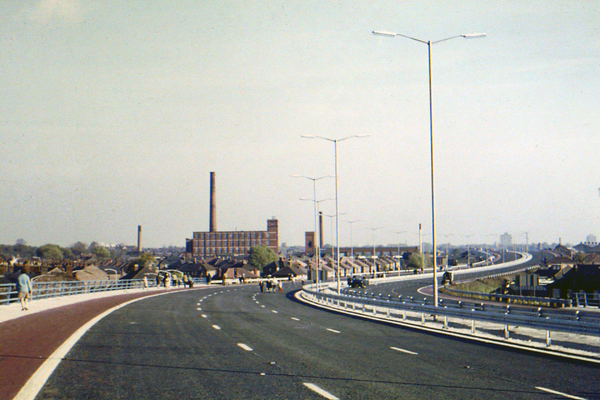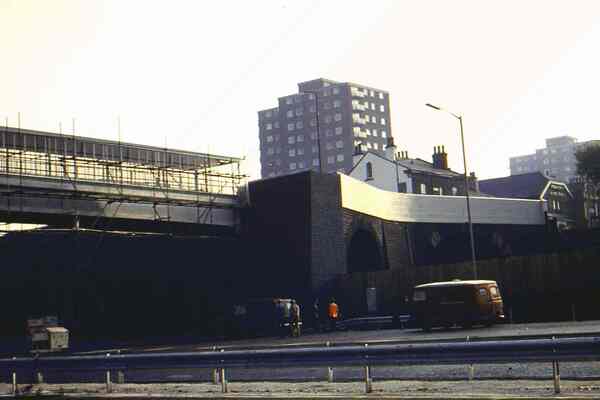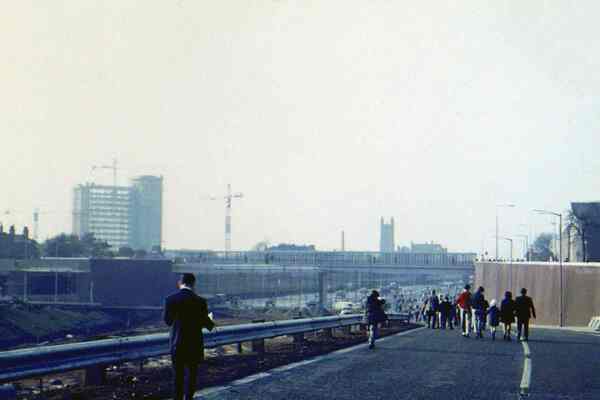
Millions of people across the North face risk of transport-related social exclusion, new report shows
New research by Transport for the North (TfN) reveals that 3.3 million people from across the North of England live in areas where there is a significant risk of transport-related social exclusion (TRSE).
TRSE is a complex issue with many potential causes and consequences, but the ultimate result is that people are prevented from participating in the opportunities and communities around them because of poor mobility and connectivity.
TfN, in conjunction with Social Research Associates and Temple, engaged with over 3,000 members of the public and experts from across the North to understand the impacts of the transport system on everyday life. Following this, TfN developed a data tool to measure the risk of TRSE across England – analysing access to jobs, education, healthcare and key services, and the vulnerability of the population to social exclusion.
This study, the first of its kind in the UK, estimates that 3.3 million people in the North of England, or 21.3% of the population, live in areas in which there is a relatively high risk of social exclusion because of issues with the transport system. These areas are widely distributed across the North but are particularly concentrated in former manufacturing and mining communities, in coastal areas, and in smaller towns and cities.
TRSE means being unable to access opportunities, key services, and community life as much as needed, and facing major obstacles in everyday life through the wider impacts of having to travel. Our research tells us that high levels of car dependency is the key driver of TRSE in the North. This has been exacerbated by declining bus service provision – reducing the travel choices for the most vulnerable people in our communities.
These wider impacts include the cost and time entailed in using the transport system, and the impacts of stress and anxiety linked with using the transport system. Together, these impacts can contribute to a vicious cycle of poverty, isolation, and poor access to basic services.
The report demonstrates the need to reduce TRSE in the North and the disproportionate impacts faced by specific population groups, including people with disabilities and with caring responsibilities, and those on low incomes.
The solutions to TRSE set out in the report focus on the need for transformation in the quality, availability, and cost of local public transport services, alongside the rollout of safe, convenient, and accessible routes for walking, cycling and wheeling that connect communities to key destinations.
This research into transport related social exclusion reveals how a poorly connected transport system in the North can have widespread and fundamental impacts on the everyday life and be a cause of social exclusion.
Lord Patrick Mcloughlin, Chair of Transport for the North said:
Quote
“As the research shows, transport-related social exclusion impacts people’s lives on a daily basis. We’ve known for a long time about the lack of transport options for those living in the rural and urban fringes and the impact it has on them, but what is revealing is the amount of people that TRSE is affecting.
“Over one in five people in the North are at risk of exclusion because of the limitations of transport options in their community. That is millions of people, many of whom are those with specific needs who rely on public transport to get to work, to go to medical appointments or to just see friends and family. This issue is holding the region back and must be addressed if we are to achieve our full potential.
“I truly believe that transport has the ability to transform people and places. It’s not just about getting from point A to B – it’s about connections: allowing communities to be sustainable and to grow; giving young people the chance to make the most of opportunities on offer; enabling older people to remain engaged and active, with a reduced risk of social isolation and loneliness.
“This report shows the level of commitment that we need to see if the levelling up agenda is to come to fruition, we need to see significant investment in local public transport across the North of England to ensure that those people who really need a working transport system will get it.”







Recommended Comments
There are no comments to display.
Create an account or sign in to comment
You need to be a member in order to leave a comment
Create an account
Sign up for a new account in our community. It's easy!
Register a new accountSign in
Already have an account? Sign in here.
Sign In Now